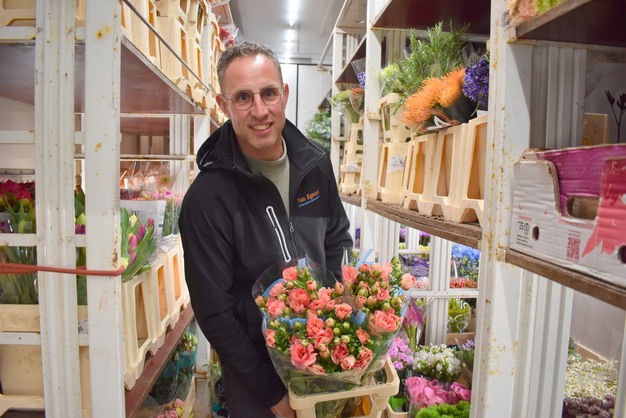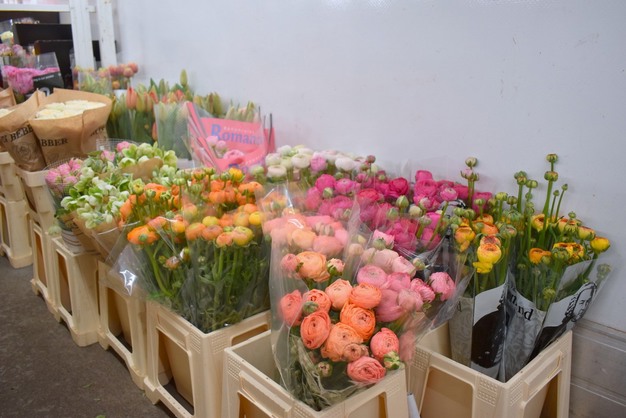From January 1 next year, many Dutch city centers will be designated zero-emission zones, so haulers wanting to keep serving customers there will have to switch to electric trucks. Similarly, florists who purchase flowers at auction must switch to electric vans. That is not even mentioning all the retail stores, construction companies, hospitality establishments, and more.

Daniël in his vehicle with a bucket of cluster roses
Daniël van Egmond is a line hauler primarily serving florists in Southern Netherlands. He is quite concerned. "I have two vehicles, the newest being 2.5 years old. That means I'll get some reprieve, I believe, until 2030*, but then I'll have to switch. The oldest won't be allowed into the city centers as early as next year. But what would a new electric vehicle cost? It will be way more expensive than a conventional one," he says.
Tricky situation
That involves significant amounts of money. Daniel is not cynical - "there's a solution for every problem" - but he is unsure what to do. "In the long term, it's great; technology is advancing rapidly, batteries are improving, charging is getting faster, and maybe it will all become cheaper in the end. But for now, it's not feasible. There's decent infrastructure for private luxury cars, but not for trucks. Installing my own charging station isn't an option, at least not an easy one; the grid is full. The transition is happening too fast for me and my clients."
Florists in the city center are particularly affected. "You obviously don't want that, but maybe the situation forces me to look or other customers. But florists need their flowers. Together we maybe can arrange something where they pick them up or get them from the auction. That, however, means they'll have to buy an electric van, and most of them aren't ready to make this investment," Daniël.adds.

10% is a lot
Last January, a wage increase took into effect."A 10% increase in costs is a lot. That's a considerable issue for many of my customers. It might be a coincidence, but I have no fewer than three clients in their early 60s and planning to retire soon, however given all these uncertainties, they're opting out."
Building relationships with customers
Van Egmond's parents and brother left the business about three years ago, leaving him fully in charge. And he loves his job. "It's a fantastic job," says Daniël. "I'm constantly visiting customers, and that contact is the best part of the job. You don't get that from your office at the auction or from your nursery. That's also our strength; building relationships and supporting each other."
"That's how you can do business in a sustainable way There will always be a need for line haulers, but the fact is there are increasingly fewer florists. For now, the main thing is that my colleagues and I can keep showing up at clients' doors, preferably with vehicles of considerable size, so we can keep offering a wide range," Daniël concludes.
For more information: Van Egmond Bloemenhandel
Van Egmond Bloemenhandel
Mob.: +31 (0) 653 815 907
Email: daniel@vanegmondbloemen.nl
www.vanegmondbloemen.nl
* If you have just bought a new vehicle, you can get a reprieve until 2030. See https://ondernemersplein.kvk.nl/vanaf-2025-zero-emissiezone-in-veel-steden/
